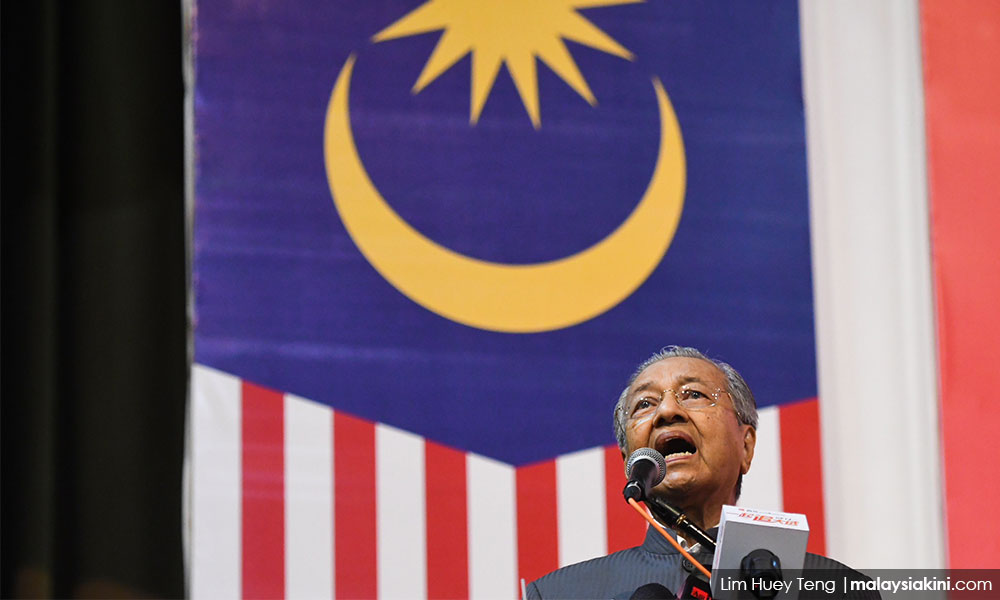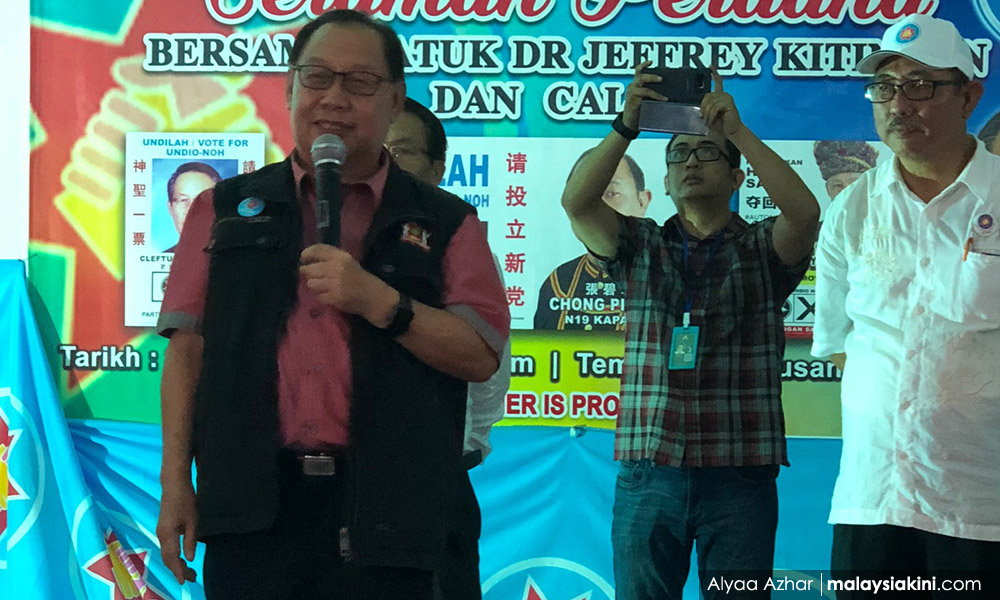
GE14 | "He destroyed Sabah". These were the words used by a local Penampang voter to describe former premier Dr Mahathir Mohamad.
And Mahathir's supposed "destruction" of Sabah was not limited to the so-called "Project IC" alone, said the man who only wanted to be identified as Danny.
"It's more than that. Sabah was neglected in terms of the economy and infrastructure," the 42-year-old contractor told Malaysiakini.
Many Sabahans equate Mahathir with "Project IC", which saw thousands of foreigners in the state being given citizenship, which had dramatically altered the state's demography. The royal commission of inquiry (RCI) on the matter had blamed corrupt civil servants for the project.
"Although I do not hold a grudge against him, he should just retire. It's not like he could come up with new approaches for Sabah."
Parti Warisan Sabah - which is leading the opposition electoral pact with PKR and DAP in Sabah - is merely being used by Mahathir to continue to be in power, added Danny.
Citing Mahathir's marred reputation in Sabah, political analyst Arnold Puyok had noted how this was proving to be an obstacle in Warisan president Mohd Shafie Apdal's efforts to topple the state BN.
Describing how Mahathir was a liability for the opposition in Sabah, Puyok said this was the reason why the "Mahathir brand" was not being promoted by Warisan.
Parti Solidariti Tanah Airku (Star) president Jeffrey Kitingan shares the same view.
"That's why even Pakatan Harapan here doesn't want him to come over, because they understand the people's sentiments - the people are still resentful.
"Look at how Project IC had displaced (many people)," Kitingan told reporters after a Gabungan Sabah programme in Penampang last night.

Like Danny, while he does not hold a grudge against Mahathir, Sabah Progressive Party vice-president Aloysius Danim Siap said the Pakatan Harapan chairperson had indeed neglected the state, citing the 1963 Malaysia Agreement, which he said had not been not respected.
"(As for) Project IC, he said it openly that he did it and that (former prime minister) Tunku Abdul Rahman did it, too.
"He admitted it, so how do you digest this?"
Mahathir in 2013 defended the granting of citizenship to foreigners in Sabah as a "lawful" act and pointed out how Tunku Abdul Rahman had similarly given out citizenship to many purportedly "unqualified persons" when the latter was in power.
The Mahathir factor, therefore, would only serve to negatively impact both Harapan and Warisan in Sabah, said Aloysius.
"Well, obviously, because people are talking about it. People are harping on the issue.
"What did he do after 22 years sitting as prime minister? Why did he bring Umno into Sabah, but didn't dare to do so in Sarawak?"
Cannot forget
Rodrick Rhazes, 35, actually admires Mahathir for his reputation of being vocal, and for his statesmanship.
"But when you're talking about the country, Sabah was indeed neglected under him.
"When he said he wants to return the rights under the Malaysia Agreement, no, that's a lie.
Rhazes simply cannot forget how the rotation system for the post of Sabah chief minister was implemented during Mahathir's time as prime minister.
"The rotation system was to ensure total control of Sabah. Two years is not enough for a chief minister to develop Sabah."
The entrepreneur also pointed to the lack of iconic developments in Sabah compared to those in the peninsula.
"Yes, we have institutions such as Universiti Malaysia Sabah, but Kuala Lumpur has highways.
"He tried to hide the Malaysia Agreement from Sabahans and he really wanted to destroy the rights of Sabahans when he tried to limit the state government's powers."
These are among the reasons why the sentiment for Mahathir is simply not favourable in the state.
"This is why Warisan doesn't want to bring him here," added Rhazes.
Apart from the oft-mentioned Project IC whenever Mahathir's name is mentioned in Sabah, many Sabahans also blame him for Umno's entry into the state.
Umno became the first West Malaysia-based BN party to take root in Sabah, and has since lorded over the state and marginalised its indigenous parties. - Mkini



No comments:
Post a Comment
Note: Only a member of this blog may post a comment.